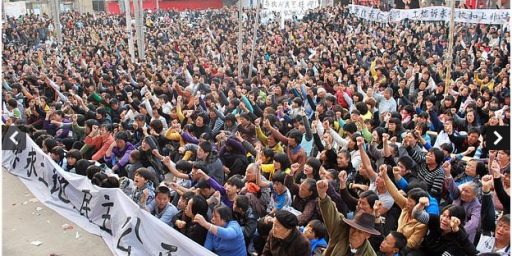REPRISALS AGAINST INFORMANTS
A tragic and bizarre story from WaPo:
Two hours before the dawn call to prayer, in a village still shrouded in silence, Sabah Kerbul’s executioners arrived. His father carried an AK-47 assault rifle, as did his brother. And with barely a word spoken, they led the man accused by the village of working as an informer for the Americans behind a house girded with fig trees, vineyards and orange groves.
His father raised his rifle and aimed it at his oldest son.
“Sabah didn’t try to escape,” said Abdullah Ali, a village resident. “He knew he was facing his fate.”
The story of what followed is based on interviews with Kerbul’s father, brother and five other villagers who said witnesses told them about the events. One shot tore through Kerbul’s leg, another his torso, the villagers said. He fell to the ground still breathing, his blood soaking the parched land near the banks of the Tigris River, they said. His father could go no further, and according to some accounts, he collapsed. His other son then fired three times, the villagers said, at least once at his brother’s head.
Kerbul, a tall, husky 28-year-old, died.
“It wasn’t an easy thing to kill him,” his brother Salah said.
In his simple home of cement and cinder blocks, the father, Salem, nervously thumbed black prayer beads this week as he recalled a warning from village residents earlier this month. He insisted his son was not an informer, but he said his protests meant little to a village seething with anger. He recalled their threat was clear: Either he kill his son, or villagers would resort to tribal justice and kill the rest of his family in retaliation for Kerbul’s role in a U.S. military operation in the village in June, in which four people were killed.
It is unclear from the story how widespread this sort of thing is. This is going to hamper intelligence gathering and thus a good tactical move for the opposition forces.
Clearly, though, there are tribal and religious conflicts, as well as old fashioned grudges, mixed in with attitudes of resentment toward foreign occupiers. It also adds to my skepticism about maintaining the current Iraqi borders in the long term.
(Hat Tip: Steve Gilliard at Daily Kos)




